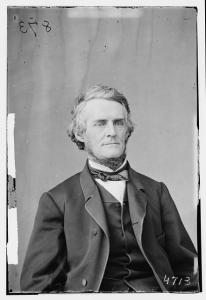From a Seneca County, New York newspaper in October 1864:
SOLDIERS’ VOTES. – The votes of our soldiers are now being received in considerable numbers daily throughout the county. Those receiving them should be careful not to open the inner envelope, which bears on the outside the general oath. If this envelope is broken open the Inspectors cannot receive the vote.
The Lincoln administration was trying to make sure those absentee ballots got counted. From The New-York Times October 24, 1864:
SOLDIERS’ BALLOTS — IMPORTANT CIRCULAR.
The following is a copy of a letter addressed to all Postmasters in the State of New-York:
POST-OFFICE DEPARTMENT, WASHINGTON, D.C., Oct. 22.
SIR: To insure to the soldiers of New-York the right of voting by proxy at the approaching election, under the law of your State, you are directed to use the utmost diligence in delivering the envelopes containing the ballots to the persons addressed, and if not called for on the day of receipt, you will in each case notify the person addressed that such a package is in your office, with the request that he call for the same without delay. W. DENNISON,
Postmaster-General.
You can read the verbiage on the inner envelope of the New York soldier ballots at Washington County. There might be a couple typos – for example, I think the soldiers had to affirm they were at least 21 years old, not less than 21. The pdf also supports the idea that soldiers could pretty much send their ballots to anyone at home. That person would then deliver the inner envelope to the election inspectors.
William Dennison, Jr. replaced Montgomery Blair as Postmaster General in September 1864. He was one of the first Ohioans to join the Republican party and was serving as governor of Ohio when the Civil War broke out:
Without being asked by the War Department, he sent Ohio troops under George McClellan into western Virginia, where they guarded the Wheeling Convention, which eventually led to the admission of West Virginia as a free state. He also took the initiative to seize control of Ohio’s railroads and telegraph lines early in the war to allow military usage, angering Peace Democrats in the Ohio Legislature. He denounced secession and Ohio’s “Copperheads”, established a consistent supply of arms and equipment for the new troops, and was a vocal supporter of Lincoln’s policies. During his term, he raised over 100,000 troops and organized 82 three-years regiments for the Union army.
You can read a good overview of the 1864 soldiers’ vote at Mr. Lincoln and New York

